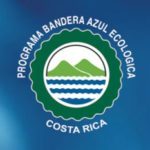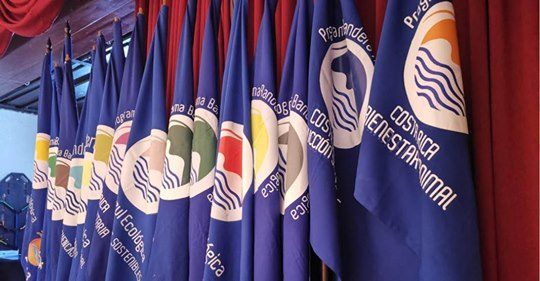
The Ecological Blue Flag Program (PBAE) last Thursday awarded 2,773 local committees in 15 categories for their voluntary efforts to protect the environment and public health.
Among the committees with the largest number of stars, the La Fortuna community of San Carlos stands out with 5 stars. In addition, Earth University, UNED Sarapiquí, Center for Research, Technological Transfer, and Education for Development of the State University at Distance (CITTED-UNED ) of La Perla de La Fortuna and La Fortuna Community Health Network were also awarded.
By 2019, 5,070 committees were registered, including the new category of animal welfare, created based on the Law against Animal Abuse.
Among the participants, beaches, educational centers, homes, municipalities, embassies, and churches are included. This program, born in 1996, has been internationalized with 2 committees in Honduras and 1 in Venezuela.
The categories with the most winners were educational centers (1320), climate change (615), agriculture (212), sustainable homes (202) and beaches (119). In total, 5,960 committees participated this year.
One of the novelties of the 2018-2019 edition is the creation of additional colored stars that recognize the efforts in areas such as coastal security, animal welfare, protection of micro-basins, food rescue or participation in Ecolones.
About the Ecological Blue Flag Program
This program awards the voluntary effort in the search for conservation and development, the protection of natural resources, actions to face climate change, and the improvement of public health.

Born in 1996 on the initiative of the AyA National Water Laboratory for beach care, it has now been extended and strengthened to include 16 categories: beaches, communities, educational centers, protected natural areas, micro-basins, climate change, agriculture, community neutral climate, community health, sustainable homes, special events, municipalities, ecological ecclesial, eco-diplomatic, sustainable construction, and animal welfare.
The PBAE National Commission is made up of a total of 16 public and private entities:
- Costa Rican Institute of Aqueducts and Sewers
- Costa Rican Tourism Institute
- National Chamber of Tourism
- Ministry of Environment and Energy
- Ministry of Public Education
- Ministry of Health
- Ministry of Agriculture and Livestock
- Costa Rican Social Security
- ICE Group
- Municipal Development and Advisory Institute.
- National Union of Local Governments
- Federated College of Engineers and Architects
- Costa Rican Network of Natural Reserves
- Business Alliance for Development
- Episcopal Conference of Costa Rica
- National Association for the Protection of Animals

